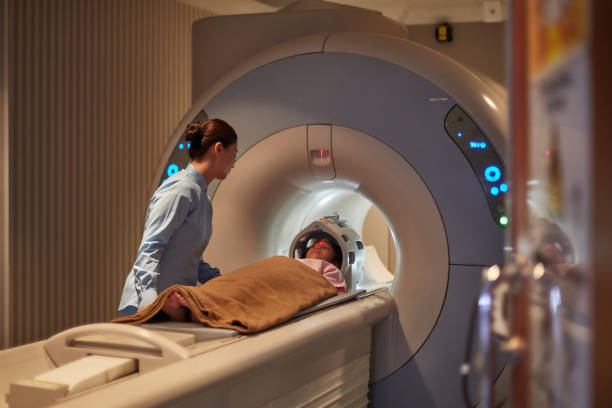There are many different reasons why would a doctor order an MRI. Sometimes an MRI is ordered as part of a routine check-up, while other times it may be ordered to help diagnose a problem. In this blog post, we will discuss some of the most common reasons why doctors order MRIs.
What Is An MRI?
An MRI, or magnetic resonance imaging, is a simple test that uses magnets and radio waves to capture images of your internal organs. It can be used to look at almost any part of your body, including your brain, spine, joints, and organs. It can often find problems that cannot be seen with other tests, such as X-rays or CT scans. An MRI is also very good at finding small changes in the body. This makes it a useful tool for monitoring conditions such as multiple sclerosis and cancer.
You may have an MRI if you have symptoms of a disease or condition that could be helped by knowing more about the problem. For example, you may have an MRI if you have:
- back pain
- joint pain
- seizures
- headaches
- multiple sclerosis (MS)
- Alzheimer’s disease
You may also have an MRI before surgery to help a doctor plan the best way to treat diseases. MRI tests usually take 30 to 60 minutes. Some tests may take longer. You may need to have more than one MRI scan over time so your doctor can track changes in your condition.
You may hear strange noises during an MRI scan. You will be given earplugs or headphones to help block out the noise. You may also be given a sedative to help you relax.
An MRI is generally safe for most people. But it is not right for everyone. Tell your doctor if you have ever had any of the following:
- metal in your body, such as an artificial heart valve or pacemaker
- steel pins, rods, plates, or screws in your bones
- bullet fragments in your body
- aneurysm clips on your brain
You should also tell your doctor if you are pregnant or think you may be pregnant. An MRI can be harmful to a developing baby.

Why Would A Doctor Order An MRI?
There are many reasons why a doctor might order an MRI. Some of the most common reasons are:
- To look for abnormalities in the brain, such as tumors, aneurysms, strokes, or bleeds.
- To look for abnormalities in the spine, such as herniated disks, fractures, or arthritis.
- To look for abnormalities in the joints, such as ligament or tendon tears.
- To look at organs, such as the liver or kidneys.
- To assess damage after a head injury.
- To diagnose multiple sclerosis (MS).
- To diagnose Alzheimer’s disease.
An MRI can be a useful tool in diagnosing many different conditions. If you have any symptoms that may be related to a problem, your doctor may order an MRI to help get a better look at what is going on.
How Much Does It Cost To Undergo MRI?
If your doctor has recommended that you get an MRI, it’s important to understand the costs involved. Here’s what you need to know about MRI prices.
The average cost of an MRI in the United States is $2,611, according to a 2018 study from Blue Cross Blue Shield. However, the exact price of an MRI will depend on several factors, including the type of machine used, the location of the facility, and whether or not you have insurance.
For example, an MRI performed on a high-field machine will typically cost more than one performed on a low-field machine. High-field MRI machines are newer and provide sharper images, which can be helpful for certain diagnoses. Low-field MRI machines are older and not as widely available, but they may be just as effective for some conditions.
The location of the facility also affects the price of an MRI. If you have your procedure done at a hospital, it will likely cost more than if you go to an outpatient center or radiology clinic. And if you live in a major city, you can expect to pay more than if you live in a rural area.
Finally, whether or not you have insurance will also affect the price of your MRI. If your insurance plan covers MRI costs, you may only have to pay a copay or coinsurance. However, if your insurance doesn’t cover MRI costs, you’ll likely have to pay the full price of the procedure.
If you don’t have insurance or your insurance doesn’t cover MRI costs, you may be able to get discounts on the procedure through a facility that offers self-pay options. You can also ask about payment plans or financing options to make the cost of an MRI more manageable.
How MRI is used?
Doctors use MRIs to look for a variety of conditions. These include:
Cancer: An MRI can be used to look for tumors in the brain, spine, breasts, or other parts of the body. It can also be used to check if cancer has spread to other parts of the body.
Brain disorders: An MRI can be used to look for problems such as stroke, aneurysms, Alzheimer’s disease, and multiple sclerosis.
Spine problems: An MRI can be used to look for problems such as herniated disks, spinal cord compression, and degenerative disk disease.
Joint problems: An MRI can be used to look for problems such as ligament or tendon tears.
Organ problems: An MRI can be used to look for problems with the liver, kidneys, or other organs.
Pregnancy: An MRI can be used to look at the developing baby. It can also be used to check for problems with the placenta or umbilical cord.

How Do Patients Prepare For An MRI?
You do not need to do anything special to prepare for an MRI. But you must follow your doctor’s instructions. Tell your doctor if you have ever had any metal in your body. You may need to have an X-ray before the MRI to make sure it is safe for you.
You will need to remove any jewelry or metal objects before the test. This includes watches, rings, necklaces, and body piercings. You may also need to remove any clothing that has metal fasteners, such as zippers or buttons. You will be given a gown to wear during the test.
You may be asked to drink contrast material before the test. This helps the pictures look better. The contrast material may make you feel flushed and warm for a short time. Some people have an allergic reaction to the contrast material. Your doctor will watch you closely for any signs of a reaction.
Conclusion
In conclusion, there are many reasons why a doctor might order an MRI. Some of the most common reasons are to look for abnormalities in the brain, spine, joints, or organs; to assess damage after a head injury; or to diagnose multiple sclerosis or Alzheimer’s disease. If you have any symptoms that may be related to a problem, your doctor may order an MRI to help get a better look at what is going on.
